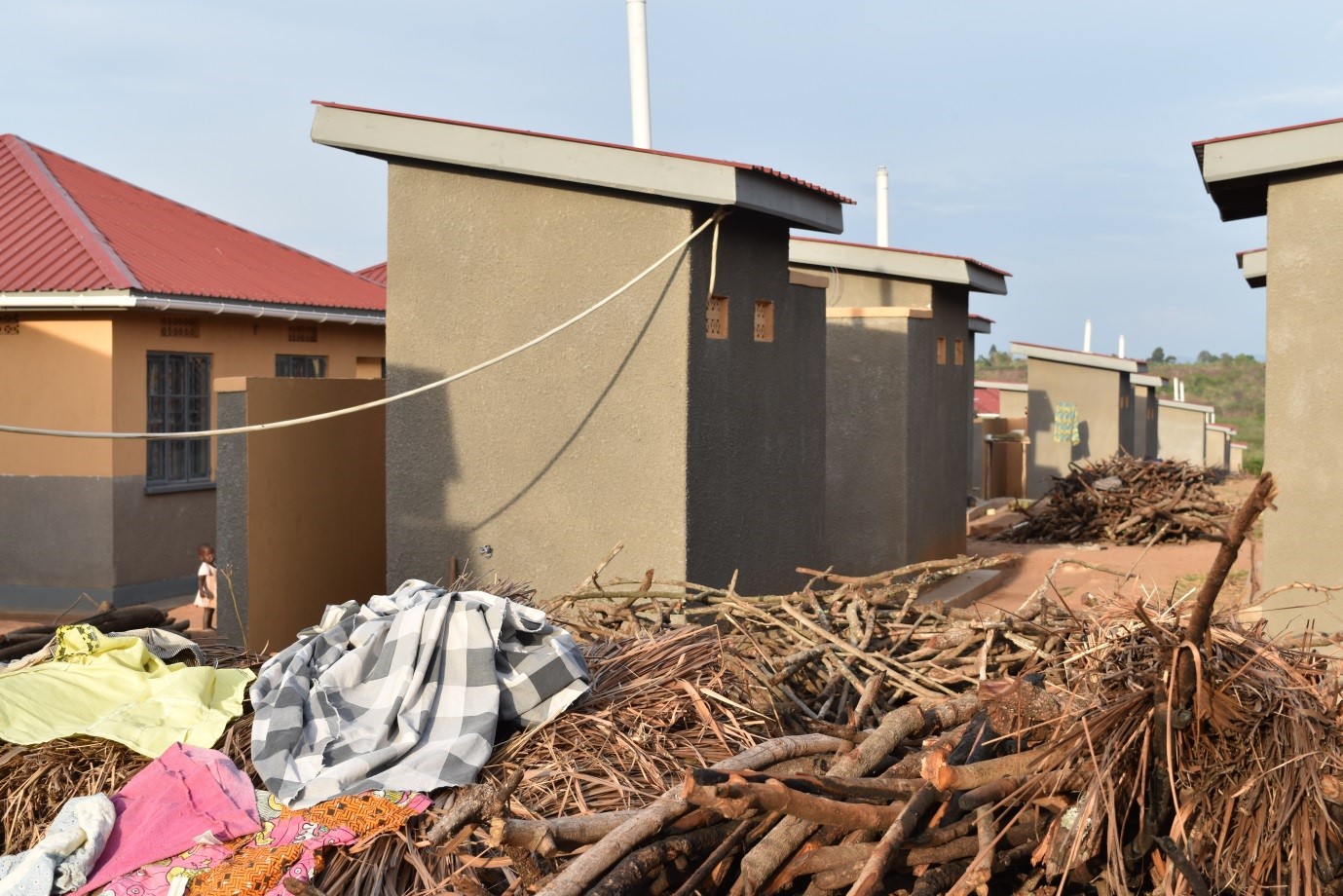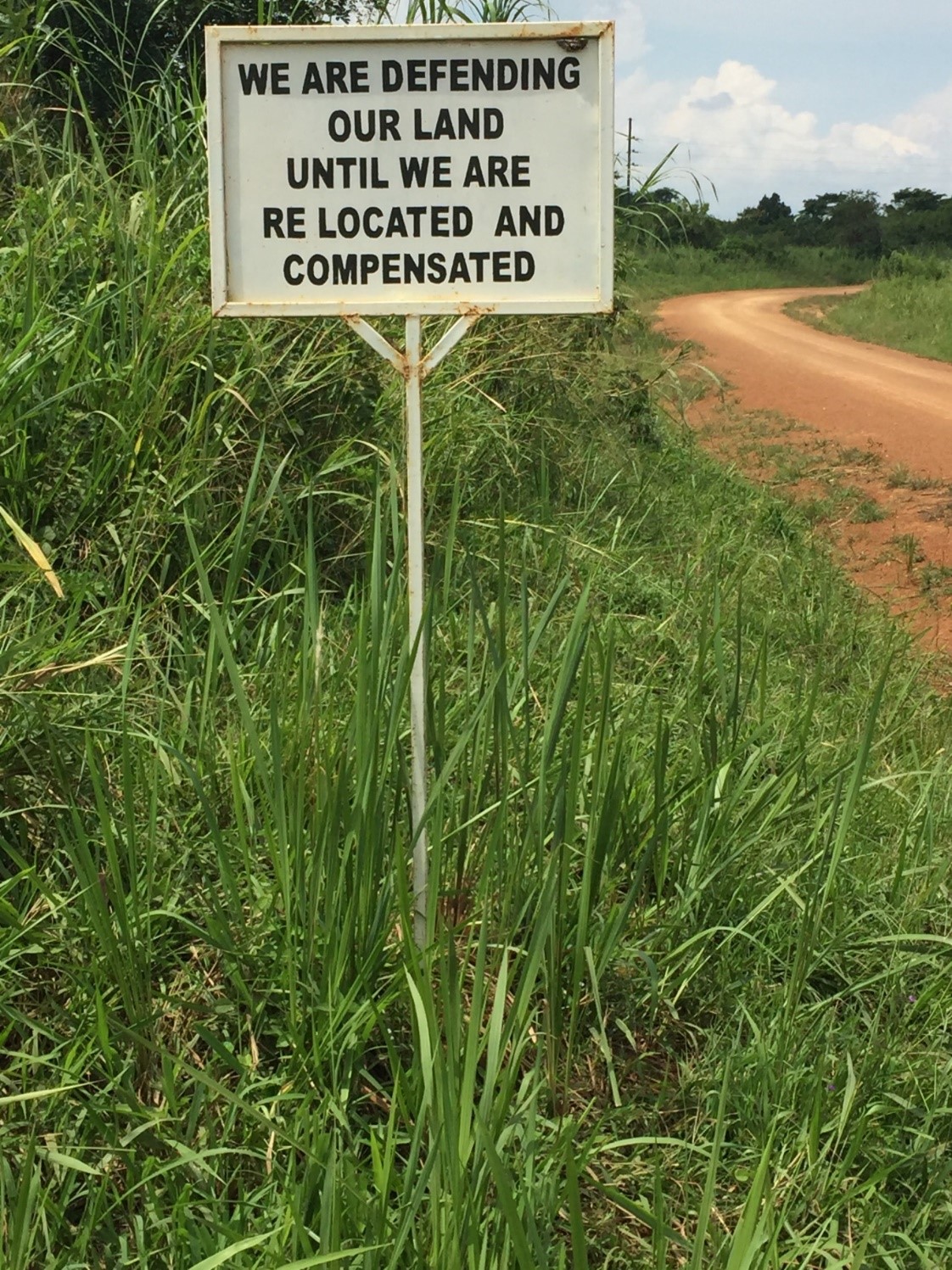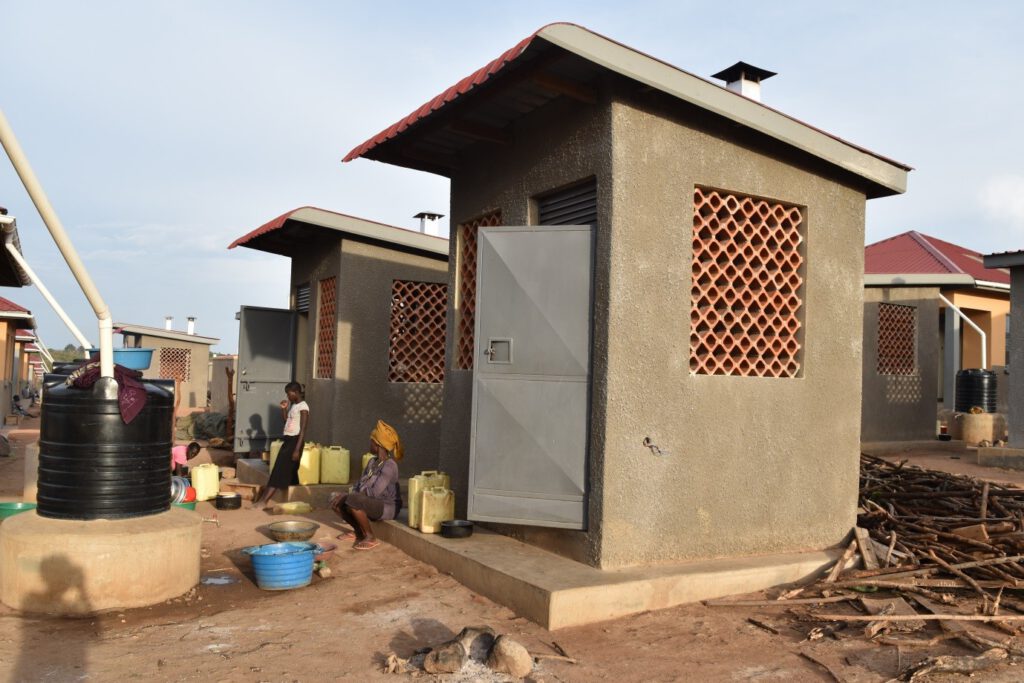Tom Ogwang, Department of Cultural Geography, Faculty of Spatial Sciences, University of Groningen, The Netherlands.
Contact details: [email protected], or [email protected]
Introduction
Following the discovery of oil in 2006, production licences were issued to the Joint Venture Partners, CNOOC (2014), Total E&P Uganda (2017), and Tullow Uganda Operations (2017). The licences will run for 25 years, with the possibility of renewal. The overall project (all projects combined) is likely to cost several billion US dollars (www.export.gov/article?id=Uganda-Oil-and-Gas). Apart from oil extraction sites, the additional infrastructure needed for oil production and distribution will also necessitate vast land acquisition, which will lead to the displacement of more communities. There are many projects that form part of the development of oil in Uganda. Some of these include; the Tilenga project; the Kingfisher project; the East African Crude Oil Pipeline (EACOP); the Kabaale Industrial Park; and the Hoima–Kampala Petroleum Products Pipeline (HKPPP). The social impacts of these projects are many, in particular the impacts associated with physical and economic displacement, and resettlement.
The cumulative impacts of oil development
It is expected that land acquisition for the projects discussed in this paper will have major social impacts on the lives and livelihoods of the affected communities (Ogwang & Vanclay, 2019). They will be displaced from their land, which is fundamental to their livelihoods. With no access to land, some families will end up in towns, which may lead to impoverishment and reduced wellbeing (Cernea, 1997). The worrying aspect about these displacements is that the persons most affected by the project are peasants engaged in agriculture, grazing and fishing, and they may find it hard to cope in a new environment with different economic activities (Golder Associates, 2018). The Kabaale Industrial Park, for example, led to the displacement of over 7000 people, while the Tilenga Project will affect over 600 people. One of the long lasting impacts of land acquisition for oil & gas production is the permanent displacement of people from their land, often without adequate provision of sustainable alternative livelihood options.
Many project-affected persons have grievances relating to the compensation processes (Kinyera, 2019), and some regretted the decisions they have made, which have now rendered them penniless and homeless. There are fears that the oil and associated developments will contribute to an influx of in-migrants, especially in the main urban centres, Hoima, Masindi, Biiso, and Pakwach. It is uncertain whether the immigrants will get the jobs they anticipate (Mawejje, 2019). More likely is that they will compete with local people for the few unskilled jobs in the region. There are tensions over job opportunities between local youth (meaning those who are born in the region) and ‘foreign people’ (Ugandans and others from outside the project areas).

In-Migration
As a result of the project-induced in-migration, the population of the region is steadily increasing. This has many implications. The cost of living will increase, the limited available social services will be over-stretched, and the very poor will not be able to access these services (Vanclay, 2017). The Tilenga Project ESIA AECOM (2018) acknowledged that, because the various projects have different timelines, a high population growth will continue to be experienced for many years. The ESIA observed that the cumulative population growth would exacerbate project impacts, especially access to land and shelter. The increasing demand would result in inflation, including in the price of land and housing. An implication of this is that the project affected persons who have been paid cash compensation will find it very difficult to find replacement land elsewhere, as the prices will likely increase beyond the levels of compensation they were paid, as was experienced by the people displaced by the Kabaale Industrial Park (Ogwang, et al, 2018; Kinyera, 2019).
Land Speculation
The increasing demand for land has created land speculation in the region. While some owners may consider they will benefit from what they perceive to be high prices they have been (or might be) paid for their land, the majority of land owners are illiterate and potentially lack understanding of the full implications of selling their land. They likely don’t have access to legal or para-legal support in the land transaction process, thus they are easily swindled. A further problem is that most land is communally owned, and without land title. Land speculation pushes land prices up and encourages the commercialisation of land. The transition to formal land tenure inevitably means that cash-poor households will opt to sell, and will then become excluded from owning any assets and from continued access to land (IFC, 2012; Vanclay, 2017; AECOM, 2018; Busscher et al, 2019). The cumulative landtake for the developments in the area means that there will be less land available for local communities which might lead to food shortages and to undesirable living conditions, at least for the poorest. Therefore, the government has to ensure that any landtake should not lead to impoverishment; rather it should lead to the betterment of the lives of project-affected persons.

Local Economic ‘boom’.
AECOM (2018) considered that oil and other infrastructure developments would stimulate the local economy, create jobs and business opportunities, and increase disposable incomes. The taxes and revenues would contribute to local and national government revenue, some of which would be spent on improving public infrastructure and services, which would further promote economic growth. The challenge is to ensure that the government spends this money appropriately. Unfortunately, the Ugandan government is no stranger to corruption and wasteful spending (Human Rights Watch, 2013; Transparency International, 2019). The vast amount of money from oil developments is likely to facilitate corrupt behaviours (Jijelava & Vanclay, 2018), which results from weak institutions (Boutilier, 2017). Collier (2017) regards the resource curse as primarily a political phenomenon, which generates a range of dysfunctional rent-seeking behaviours.
Food insecurity
Rural peasants may be manipulated by middlemen or local agents into selling-off their land at less-than-replacement prices. Sometimes, they are threatened or intimidated into selling. An official from the Bunyoro Kitara Kingdom described the land grabbing actions of highly-connected people in government and noted that the Bunyoro people were helpless against it because the land grabbers were being protected by the government. Land speculation and its displacement has knock-on effects in that people pushed out of higher-value lands encroach upon more marginal lands, creating inflation at lower levels, with poorer people becoming completely priced out of the land market (Cotula et al , 2009).
The cumulative landtake will ultimately lead to a large-scale conversion of former agricultural land to industrial and commercial purposes (AECOM, 2018). This may render local people vulnerable to food insecurity, prostitution, landlessness, and increased poverty (Fielding-Miller et al, 2014). AECOM (2018) identified many pertinent issues and concluded that many economically displaced households would not return to their previous livelihood activities, but were likely to try to find work in urban and semi-urban areas or in the oil projects, which would lead to changes in livelihood and employment patterns in the region, with both positive and negative effects (AECOM, 2018). In the case of the Kabaale Industrial Park, over 7000 people were displaced. Some of these people are no longer in agriculture, which was previously their main livelihood activity. Some ventured in boda boda (motor cycle) businesses that have since collapsed. On the positive side, it was noted that the oil developments presented opportunities for those able to get formal jobs, who would likely earn more and would be able to upskill. Conversely, those unable to find employment would experience increased insecurity and impoverishment. The projects will also contribute to community disarticulation and the disruption of people’s livelihoods in many ways.
Conclusion
This paper examined the social and environmental impacts of land acquisition for five projects associated with oil & gas development in Uganda. Should they all proceed as planned, collectively these five projects will consume around 115,000 hectares of land and will displace nearly 15,000 people. The social impacts of these projects on the local communities are many and varied, including: increased levels of poverty, conversion of agricultural land to industrial purposes increasing food insecurity, inflation in the cost of goods and services, community disarticulation, and disruption of people’s lives and livelihoods.
The influx of in-migrants is viewed by local people as a threat to their survival due to increased competition for limited job opportunities. Since most land is communally owned, faced with the prospect of having land bought or expropriated, there are social tensions within communities about how land might be kept sufficiently intact for viable agricultural production, and over how the community might be able to cash-in on such opportunities. Another challenge is how the proceeds from the sale of land should be used. Women are still socially excluded from owning land, which is a major concern when it comes to fair compensation and their future livelihoods. In most cases, they have been made worse off by the land acquisition for oil development in Uganda.
On a positive side, these projects have created job opportunities for some of those people with the necessary qualifications, although not all those who are qualified can be absorbed. The new roads, dubbed locally as ‘oil roads’, have greatly improved accessibility to and within the region. The enhanced movement of goods and people has made many things easier and cheaper, although has generated much in-migration. We recommend that the government and oil companies ensure that any land acquisition does not lead to impoverishment of communities. Instead, land acquisition should lead to the betterment of the lives of displaced persons, project affected persons and surrounding communities, irrespective of whatever resettlement option they have chosen. Land grabbing and speculation should be seriously addressed in order to protect communities from being manipulated and short-changed.
A longer version of this paper was published as “Social Impacts of Land Acquisition for Oil and Gas Development in Uganda” in LAND, Land 2019, 8, 109; doi:10.3390/land8070109. I would like to acknowledge my co-author, Frank Vanclay for his contribution in the first publication.
References
AECOM. 2018. Tilenga Project Environmental and Social Impact Assessment, Volume IV-V, available online: https://www.eia.nl/docs/mer/diversen/tilenga_esia_volume_iv_13-09-18.pdf.
Boutilier, R.G. 2017. Raiding the honey pot: The resource curse and weak institutions at the project level. Extr. Ind. Soc. 4, 310–320.
Busscher, N.; Parra, C.; Vanclay, F. 2019. Environmental justice implications of land grabbing for industrial agriculture and forestry in Argentina. J. Envi. Plan. Mana. https://doi.org/10.1080/09640568.2019.1595546
Cernea, M. 1977. The Risks and Reconstruction Model for resettling displaced populations. World Development, 25, 1569–1587.
Collier, P. 2017. The institutional and psychological foundations of natural resource policies. Journal of Development Studies, 53, 217–228.
Cotula, L.; Vermeulen, S.; Leonard, R.; Keeley, J. 2009. Land Grab or Development Opportunity? Agricultural Investment and International Land Deals in Africa, IIED/FAO/IFAD, London/Rome, Available online: http://www.fao.org/3/a-ak241e.pdf.
Fielding-Miller, R.; Mnisi, Z.; Adams, D.; Baral, S.; Kennedy, C. 2014. “There is hunger in my community”: a qualitative study of food security as a cyclical force in sex work in Swaziland. BMC Public Health, 14:79.
Golder Associates. 2018. Environmental and Social Impact Assessment for the CNOOC Uganda Ltd Kingfisher Oil Development, Uganda: Social and Cultural Heritage, Vol. 4C, Golder Associates Africa: Durban, South Africa.
Human Rights Watch.2013. Letting the Big Fish Swim: Failures to prosecute high-level corruption in Uganda, Allard K. Lowenstein International Human Rights Clinic Yale Law School. available online: https://www.hrw.org/sites/default/files/reports/uganda1013_ForUpload_1.pdf.
IFC. Guidance Note 5: 2012. Land Acquisition and Involuntary Resettlement; International Finance Corporation: Washington, DC, USA.
Jijelava, D.; Vanclay, F. 2018. How a large project was halted by the lack of a Social Licence to Operate: testing the applicability of the Thomson and Boutilier Model. Environ. Impact. Assess. Rev. 73, 31–40.
Kinyera, P.B. 2019. Land, oil and expressions of citizenship in Uganda’s Albertine Graben, Extr. Ind. Soc. 6, 110–119.
Mawejje, J. 2019. The oil discovery in Uganda’s Albertine region: Local expectations, involvement, and impacts, Extr. Ind. Soc. , 6, 129–135.
Ogwang, T.; Vanclay, F.; van den Assem, A. 2018. Impacts of the oil boom on the lives of people living in the Albertine Graben region of Uganda. Extr. Ind. Soc., 5, 98–103.
Ogwang, T.& Vanclay, F. 2019. Social Impacts of Land Acquisition for Oil and Gas Development in Uganda” in LAND, Land, 8, 109; doi:10.3390/land8070109
Ogwang, T.; Vanclay, F.; van den Assem. 2019. A. Rent-Seeking Practices, Local Resource Curse, and Social Conflict in Uganda’s Emerging Oil Economy. Land, 8, 1–14.
see https://www.export.gov/article?id=Uganda-Oil-and-Gas.
Transparency International. Corruption Perceptions Index .2019. Available online: https://www.transparency.org/whatwedo/publication/corruption_perceptions_index_2018.
Vanclay, F. 2017. Project-induced displacement and resettlement: From impoverishment risks to an opportunity for development? Impact Assess. Proj. Appraisal 35, 3–21.
